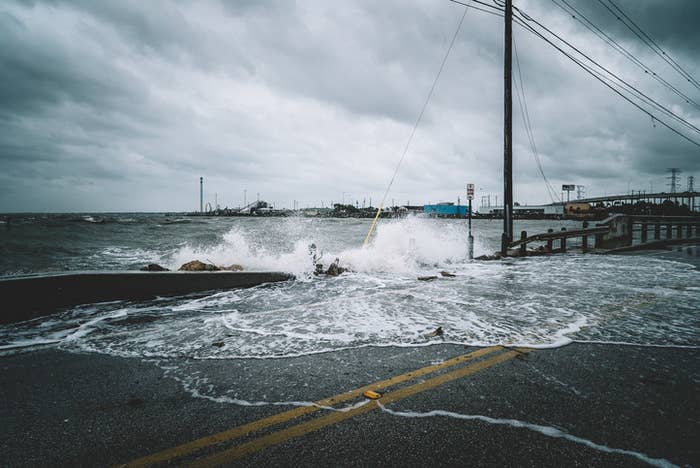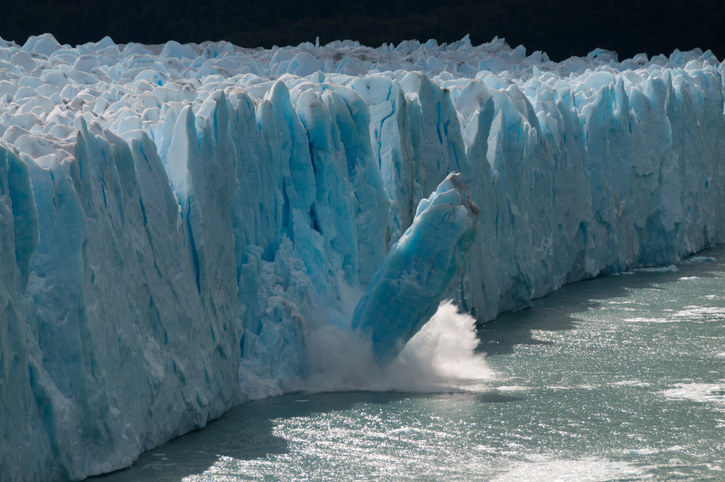
The oceans are warming at a rate 40% faster than the average of previous estimates, according to a new study published in the journal Science.
In 2014, the UN's Intergovernmental Panel on Climate Change (IPCC) released its Fifth Assessment Report, which estimated that the upper 75 metres of the ocean had warmed by approximately 0.44ºC from 1971 to 2010.
However, the US and Chinese researchers who authored the Science paper said that the IPCC report had amassed research on the ocean heat content (OHC) that was actually uncertain and based on inaccurate measurement techniques.
Prior to the deployment of the Argo network in the early 2000s (a series of 3,900 sophisticated floats that measure ocean temperature across the globe), ocean and climate scientists relied on expendable bathythermographs (XBTs) to measure ocean temperature.
XBTs are deployed off the back of ships on a copper reel to depths of 1,800 metres and relay water temperature back to the ship.
But they do not provide information about the depth at which they are trailing behind ships, which means that the OHC data collected throughout the 20th century was unreliable.
Kevin E. Trenberth, a senior climate scientist from the National Center for Atmospheric Research in Colorado and a researcher on the Science paper, told BuzzFeed News that using data from the Argo network floats, the scientists were able to accurately calculate six decades of ocean temperature.

Correcting the data from the XBTs is a complex and arduous process involving calculating the movement of the ships that specific devices were attached to, as well as the turbulence of the ocean at the time.
Using statistical analyses, the researchers were able to fill in the gaps and project temperature rises to the end of the century.
"The rates of increase of ocean heat are a lot higher than in the last IPCC report," said Trenberth. "It's also accelerating so the rate of heating is going up and 2018 is going to be the hottest year [for ocean temperature] on record."
About 93% of the heat energy trapped by greenhouse gases is absorbed by the ocean and Trenberth said that measuring OHC is one of the most accurate gauges for understanding climate change.
"The oceans are really the main memory of all of the climate change; you can see the increases [in temperature], there's much less weather noise, there's much less El Niño noise, and as a result we can see that the planet is unequivocally warming," he said.

What does a warmer ocean mean for the planet?
Warmer oceans mean fiercer storms, Zeke Hausfather, an author of the study and energy systems analyst at Berkeley Earth, told BuzzFeed News.
"What we can certainly say is that a warmer world will have riper conditions for more extreme hurricanes ... the warmer the ocean waters, the more potential for energy for these storms," said Hausfather.
In 2017 one of the warmest spots in the ocean was in the Gulf of Mexico, which triggered the formation of Hurricane Harvey, a category 4 hurricane that made landfall in Texas and caused $180 billion USD in damage.
In 2018, one of the warmest places in the ocean was off the east coast of the United States, where Hurricane Florence developed and caused extensive damage in North and South Carolina when it made landfall.
Trenberth said that increasingly destructive weather patterns witnessed across the globe over the past year are related to the rise in OHC.
"It's creating increased risk of flooding in places around the world and we've seen a number of examples of that — in Japan in July and in India in the monsoon season and so on. It has consequences that really matter," he said.
The projection for an OHC rise to 2100 will also prove devastating for the planet's coral reefs. Oceanic heatwaves have killed half of the Great Barrier Reef since 2016 through coral bleaching events and Hausfather said the drastic temperature rise could destroy coral environments entirely.
"Coral reefs are sort of the canary in the coal mine here — even today we see that an unusually warm summer causes a sizeable chunk of the world's coral reefs to die," he said.
"The problem is by 2030 or 2040 what is an unusual bleaching event today will become an average summer."
